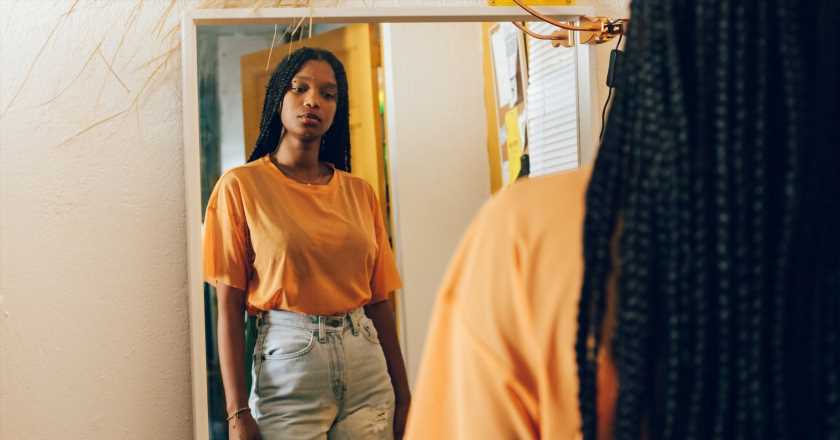
Written by Amy Beecham
Nearly two years since the pandemic began, three women reflect on how their outlook on life has changed since Covid-19.
When Covid-19 first arrived in the UK on 31 January 2020, nobody knew what to expect. We certainly didn’t imagine that nearly two years later, our physical, mental and emotional health would still be impacted daily by a virus that seemingly came out of nowhere.
And over that time, through lockdowns and isolation from our loved ones, alongside political tensions and climate anxieties, it’s safe to say that many of us feel very distant from the people we were when the pandemic began.
The pandemic has been hard on us all. It’s been a heavy period of grief, confusion and fear, and there have been times when we’ve mourned the things that Covid-19 caused us to lose sight of.
Stylist asked three women to reflect on how they’ve changed since the pandemic began. This is what they said.
“I worry so much more than I used to”
“I have always been outgoing and I still consider myself as such, but I definitely worry a lot more than I used to,” Nikita*, 24, from London, tells Stylist. “I went to therapy for the first time during the first lockdown and though I found it extremely helpful, it made me realise just how many hang-ups I had to confront that I hadn’t even considered before.
“I never thought of myself as someone with anxiety, or who had a perfection complex or struggled with confidence. But when you have nothing to focus on but yourself, you get a clearer picture of your mental health and start to see the strains and gaps that being busy or extroverted may have hidden.
“Since the pandemic, I stress over money, maintaining friendships and my job, which are all pretty standard but feel a bit like they’ve come out of nowhere for me.
“I’m not as carefree as I used to be, which probably isn’t a bad thing, butI do miss feeling like someone who had the whole world at her feet rather than playing catch-up for lost years and experiences.”

“I went from an introvert to an extreme extrovert”
“When the pandemic started, I was at university, in a relationship and spent a lot of time in my own company,” says Alice, 22, from Liverpool. “18 months later and I’m in the working world, single and socialising more than ever.”
Alice says that when lockdown was first announced, the prospect of spending time on her own wasn’t even slightly daunting. But since restrictions lifted, she’s leaned into seeing friends, going out and making the most of her relationships.
“Lockdown gave me a chance to reflect on my life, so when we came out of it it felt like there were loads of new opportunities that I needed to make the most of.
“Before, I used to spend all my time with my ex-boyfriend or by myself and I struggled with anxiety. Now, it’s not a part of my life in the same way it used to be and I feel so much more like myself.”
“I look and feel like a different person”
“Pre-pandemic, I was a competitive kickboxer, training and working out intensely four or sometimes five times a week,” says Ally, 32. “This obviously had to stop during the pandemic, but taking time away from fitness has helped me to re-evaluate what makes me content.
“Since the pandemic, I’m a couple of dress sizes bigger, sure, but I’ve got a new respect for my health and my body. I now do my best to approach exercise for enjoyment rather than to burn calories. But more than that, my whole identity has changed from being this “fitness person” to something not so easily pigeon-holed. I’ve been able to embrace other aspects of my personality and interests that I hadn’t made time for before – like falling back in love with cinema. I even came out as queer during the pandemic, which felt like a bit of a breakthrough.
“The biggest shift has been how I see myself, inside and out, and owning it. Not being such a people pleaser and focusing on traits that are more valuable and interesting than how my body looks or what my 5k time is. I don’t look at myself pre-pandemic and think, ‘Poor little waif, if only she knew better,’ I think, ‘That was me in my 20s, this is me now’.”
If you are worried about your mental health, or if you’re concerned about someone else, you can find support and resources on the mental health charity Mind’s website, with NHS Every Mind Matters or access the NHS list of mental health helplines and organisations.
If you are struggling with your mental health, you can also ask your GP for a referral to NHS Talking Therapies, or you can self-refer. For confidential support, you can also call the Samaritans in the UK on 116 123 or email [email protected].
Images: Getty
*Some names have been changed.
Source: Read Full Article